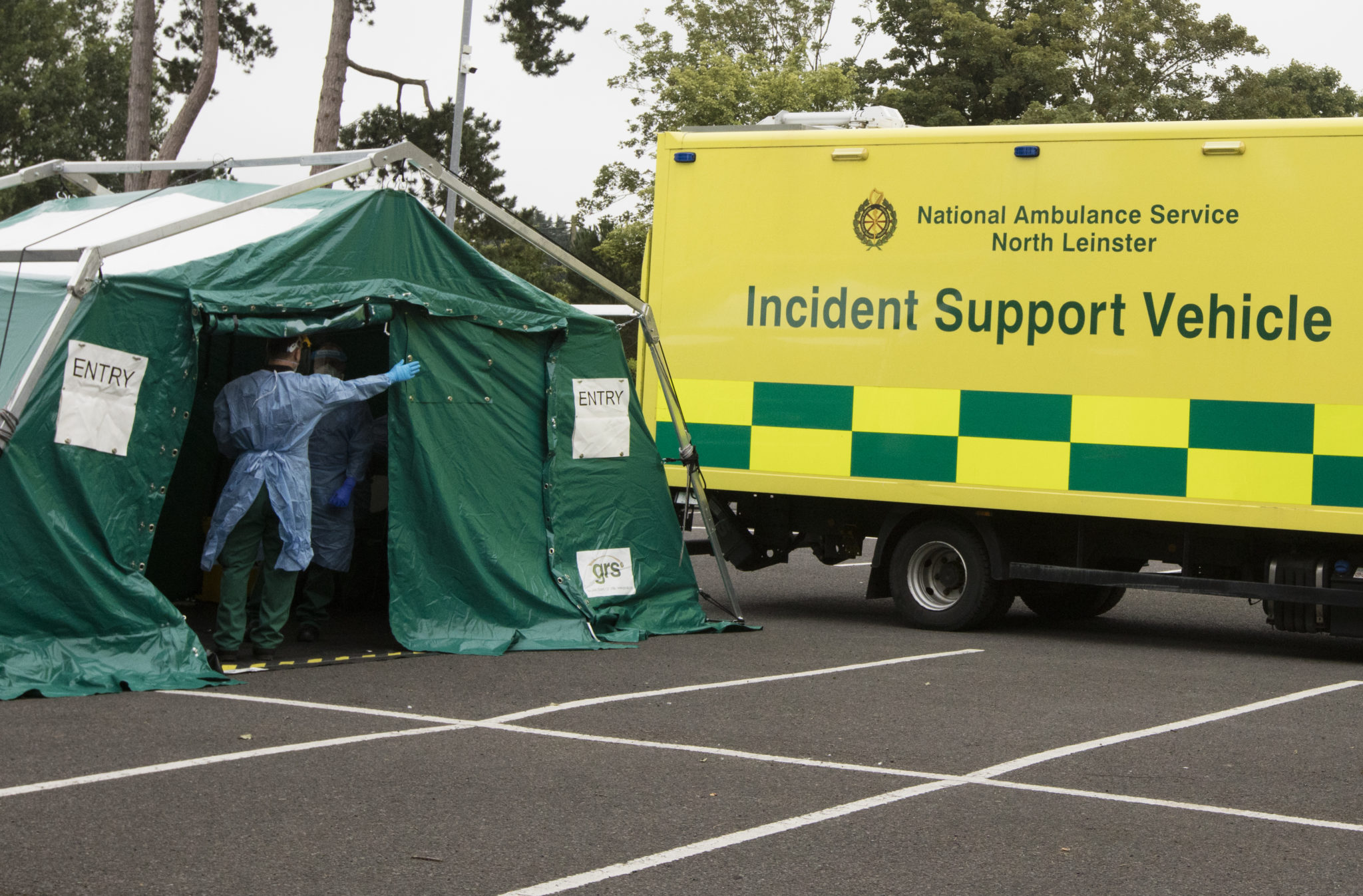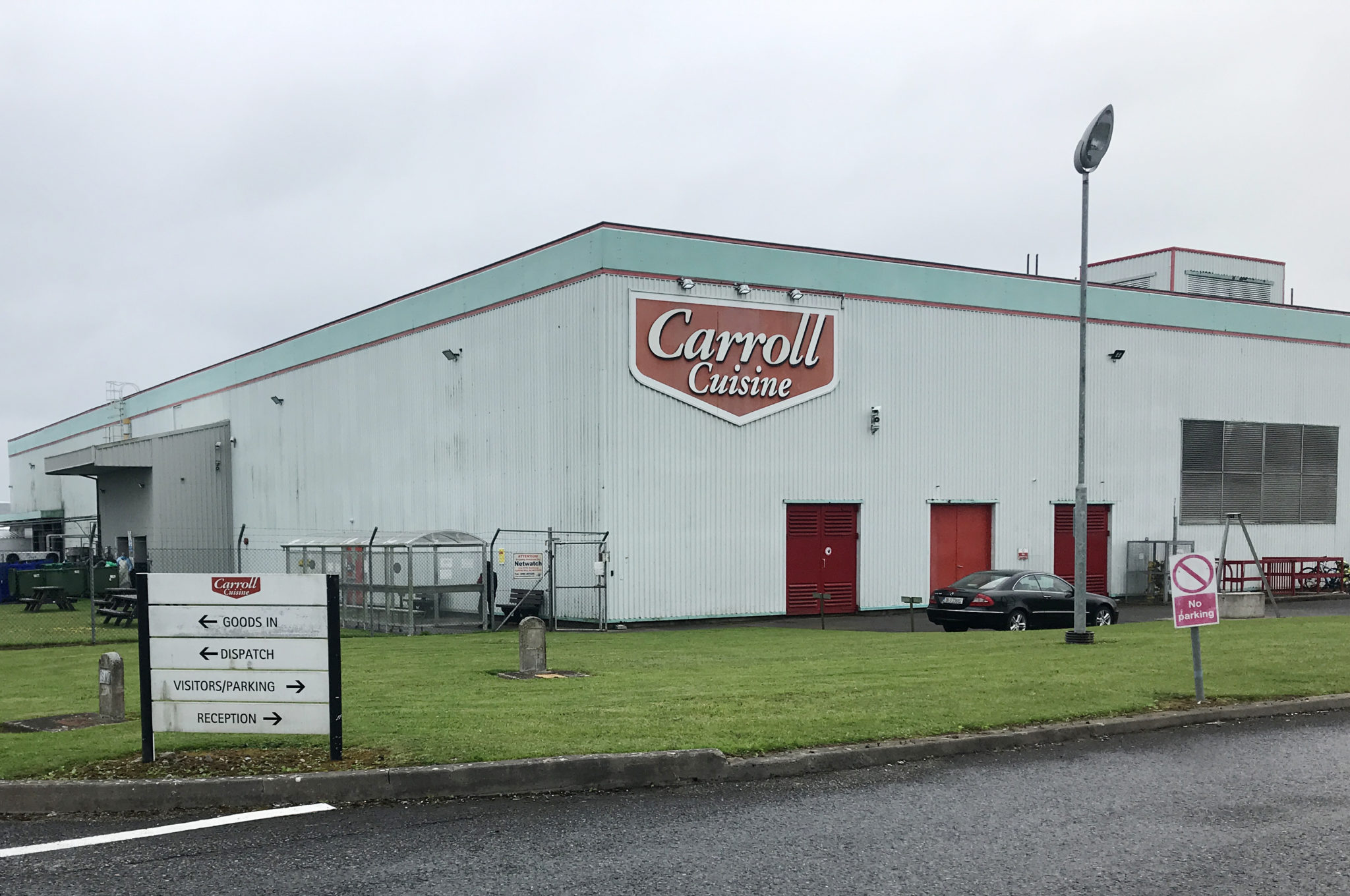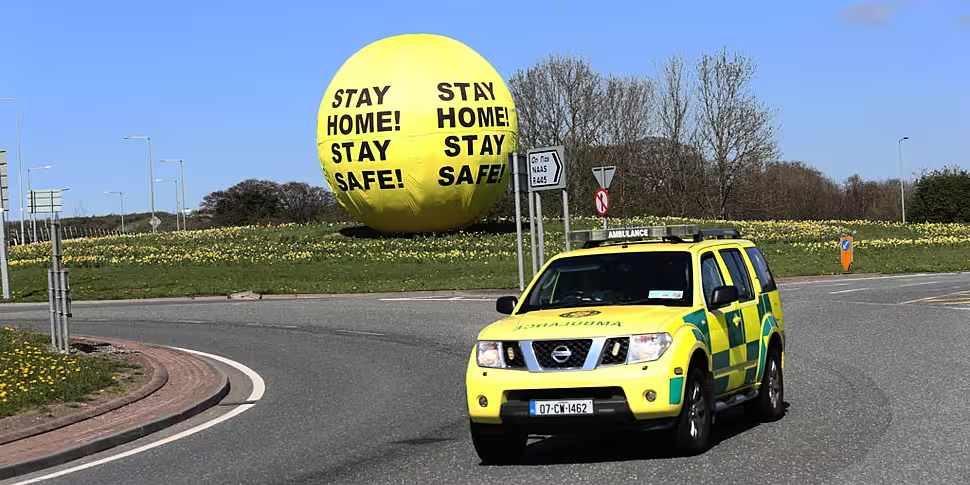An expert in human health has said officials should focus on catching COVID-19 outbreaks as soon as they happen instead of locking down regions in response to them.
The two-week lockdown in Kildare, Laois and Offaly was introduced after hundreds of workers tested positive at meat processing plants in the three counties.
Those clusters contributed to a significant rise in the national figures with the 57 new cases confirmed today taking the national total to 26,768.
On The Hard Shoulder this evening, Professor Paul Moynagh, Head of the Department of Biology and Director of the Human Health Research Institute at NUI Maynooth said the level community transmission in Ireland is still quite low.
“Meat factories would be one of the breeding grounds for the virus and we have known about this as part of what we have experienced here in our country but also even more recently in Germany,” he said.
“So, there will be spikes like this and obviously the challenge is to identify them as early as possible and suppress them as early as possible.
“That is the challenge and I think that is what we should be focusing on – identifying the signals very early on, having really strong surveillance in place and then acting to suppress it before it becomes a problem.”
 A National Ambulance Service COVID-19 Testing Centre in Newbridge, County Kildare, 10-08-2020. Image: Eamonn Farrell/RollingNews
A National Ambulance Service COVID-19 Testing Centre in Newbridge, County Kildare, 10-08-2020. Image: Eamonn Farrell/RollingNewsHe said county-based lockdowns unfairly target those that have more factories.
“Let’s say the lockdown here locally lasts for two weeks but then we have another cluster maybe one or two weeks after that,” he said.
“Are we going to have repeat lockdowns in locations that have a number meat factories or high-risk premises?
“That is what I would worry about so going forward. On a once-off basis, it may be manageable but if this were to become repeated there is a real risk in terms of fatigue coming into play and the consequences of that are quite significant.”
Professor Moynagh said we have far more effective tools at our disposal than lockdowns when it comes to tackling the virus.
“We know what is effective in terms of dealing with this at a community level,” he said.
“That is the social distancing and good hygiene etc. That is really important and that has been really, really effective and we need to continue to give that message.
“Those measures combined with the use of masks are very strong and very effective and the secret then is to try to suppress these clusters and try to identify them as early as possible.”
 Carroll’s Cuisine meat plant in County Offaly, 10-08-2020. Image: Eamonn Farrell/RollingNews
Carroll’s Cuisine meat plant in County Offaly, 10-08-2020. Image: Eamonn Farrell/RollingNewsHe said any future lockdown should be “as targeted as possible” and should focus on municipal districts and areas directly around clusters instead of county borders.
“I generally wouldn’t be a big supporter of [lockdowns], especially in terms of the national lockdown that took place,” he said.
“At the time, I can understand why we went into the full lockdown but I think if you look at the data subsequently, it is difficult to see that you gained anything significant beyond what we had put in place before March 28th.
“I am also mindful in terms of the effects of lockdown both economically and in terms of non-COVID healthcare provision.”









